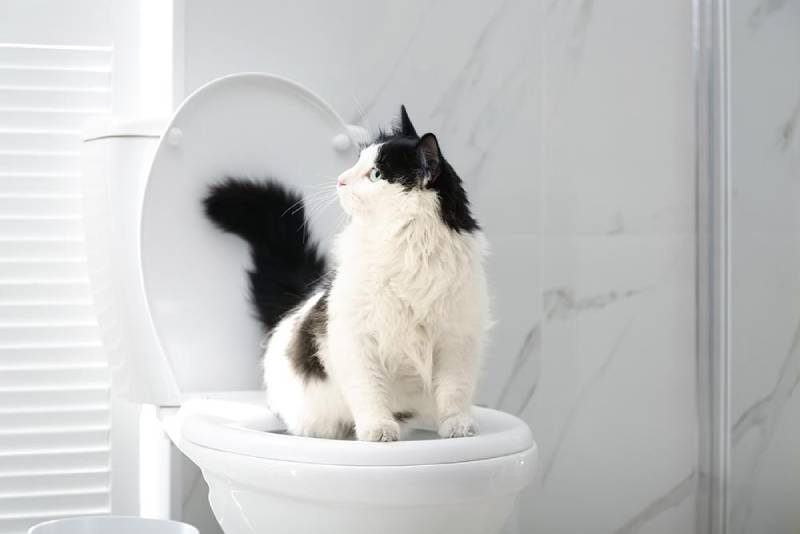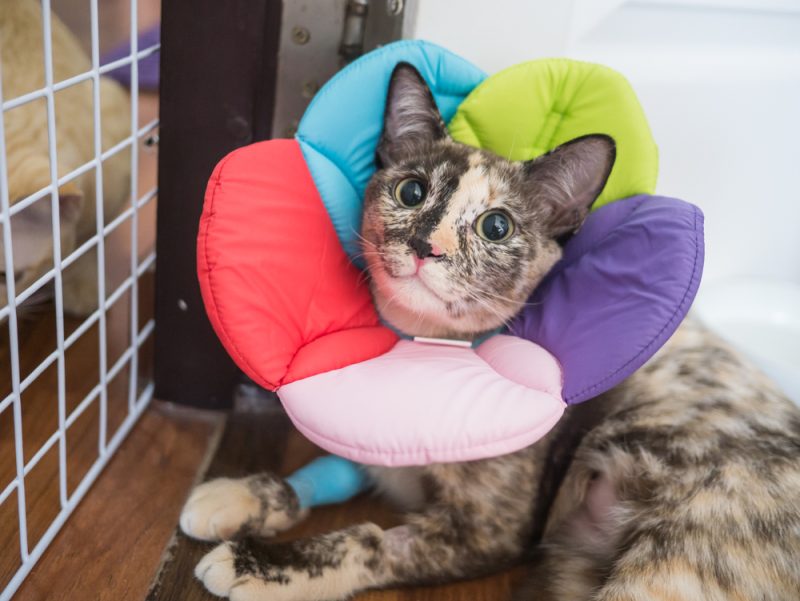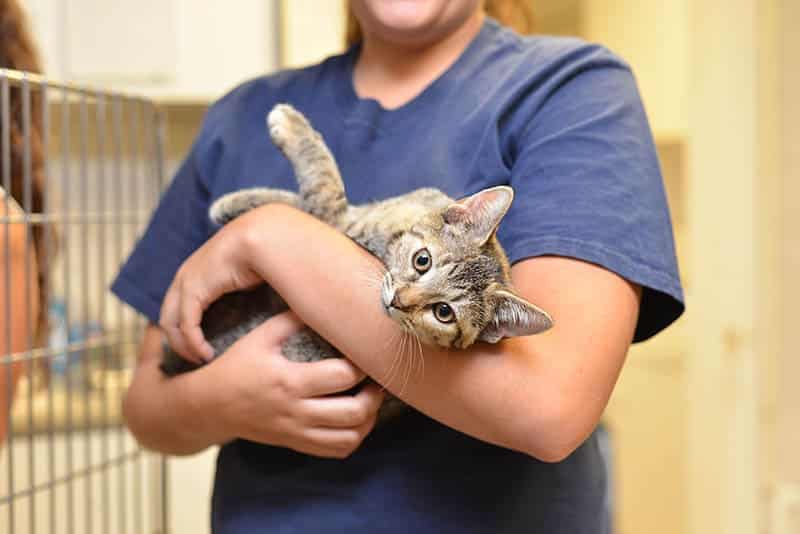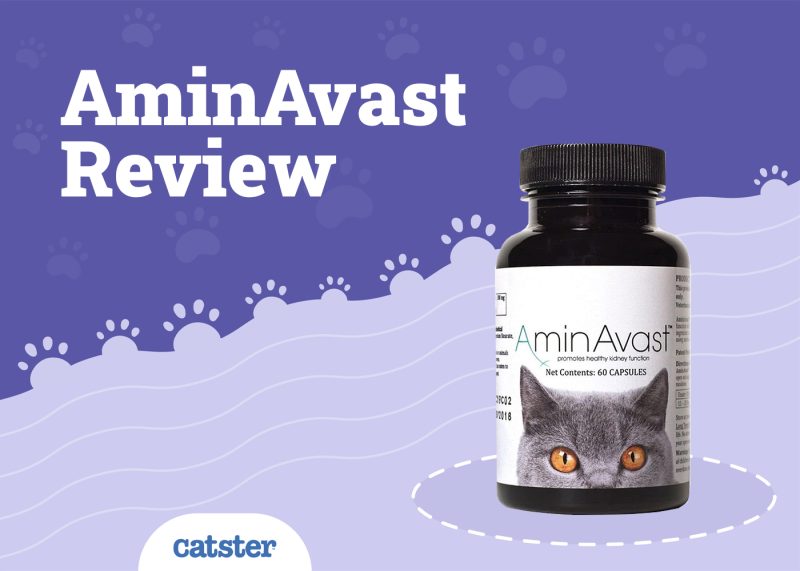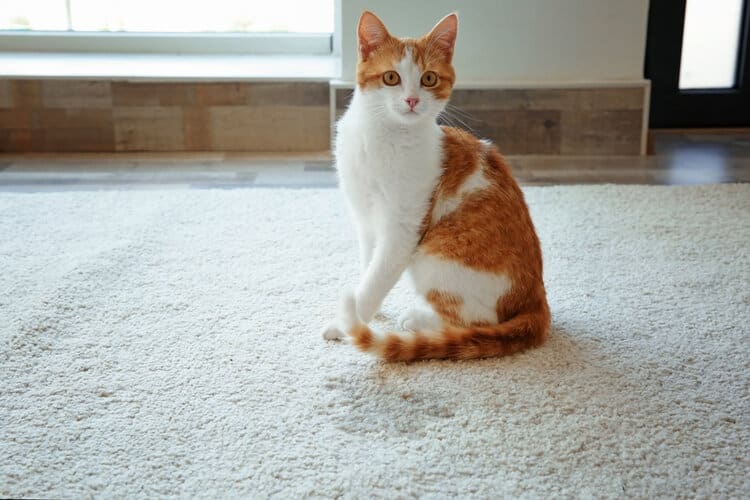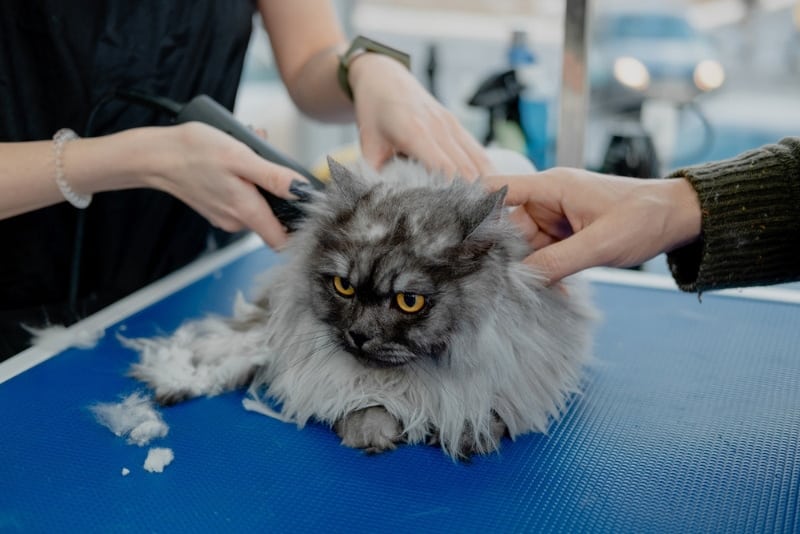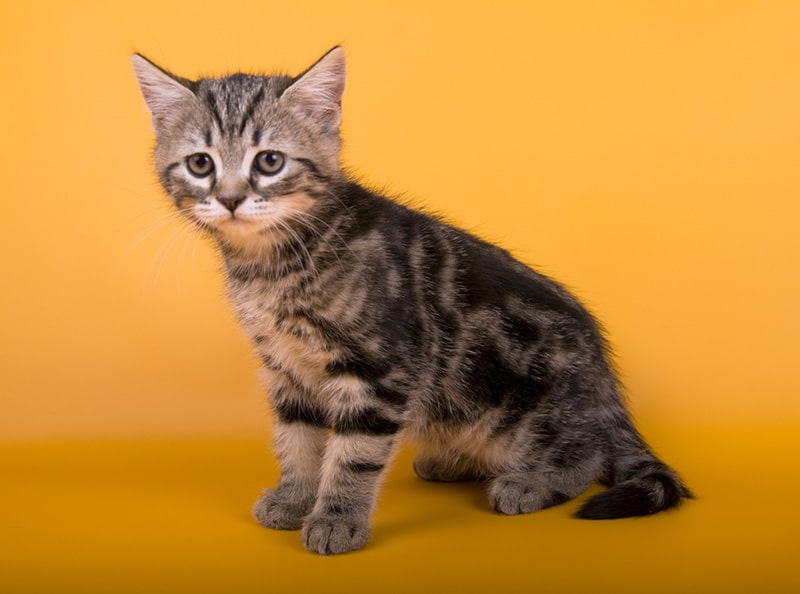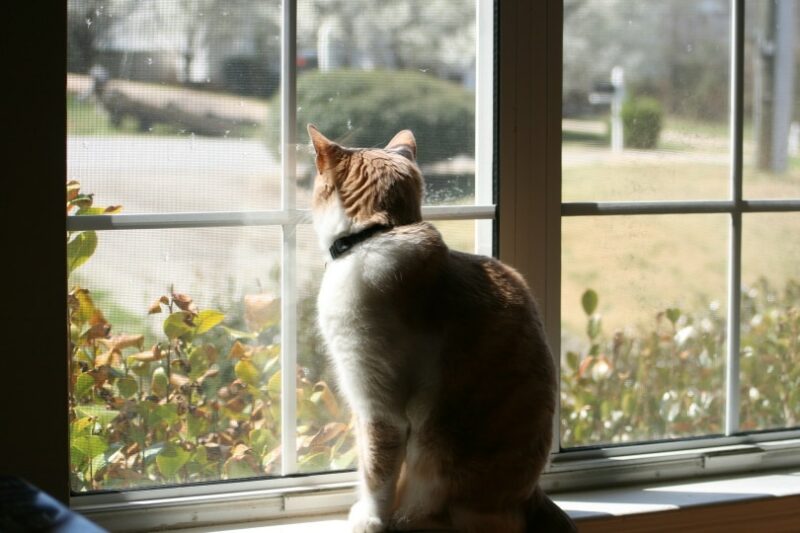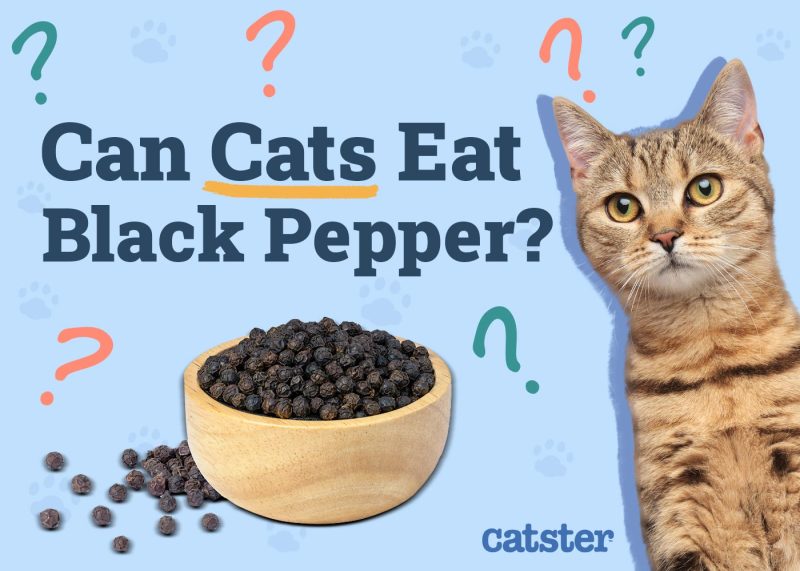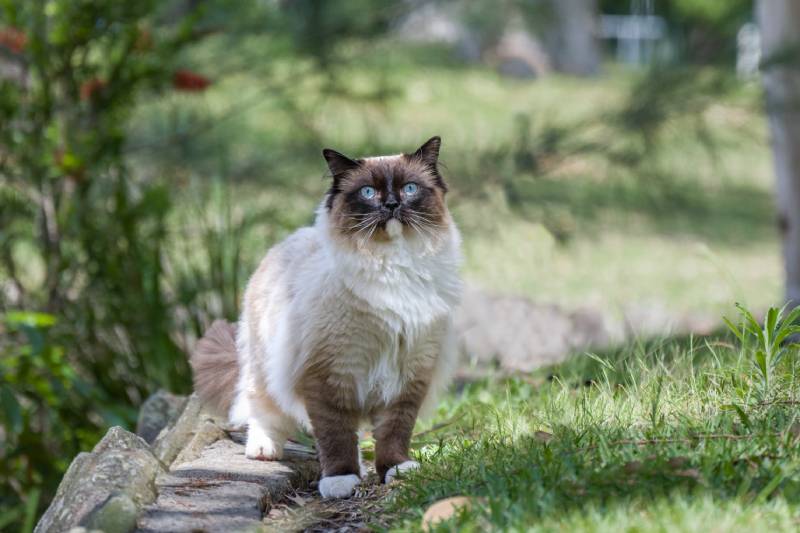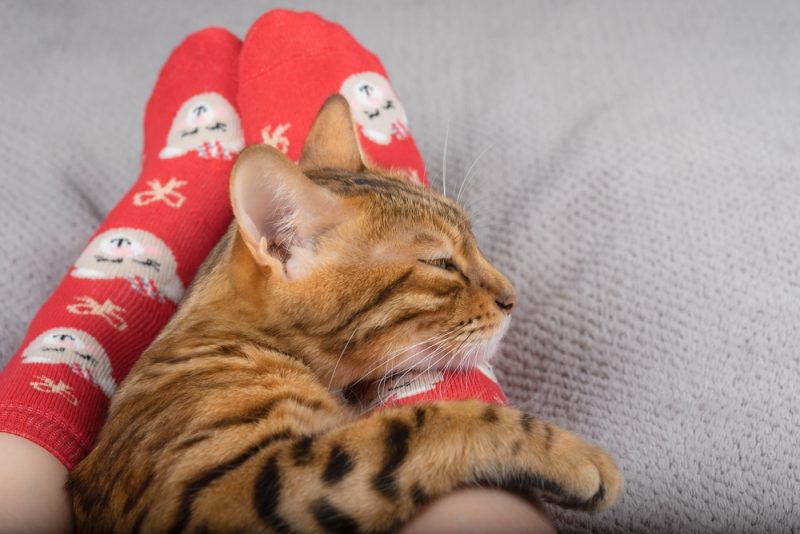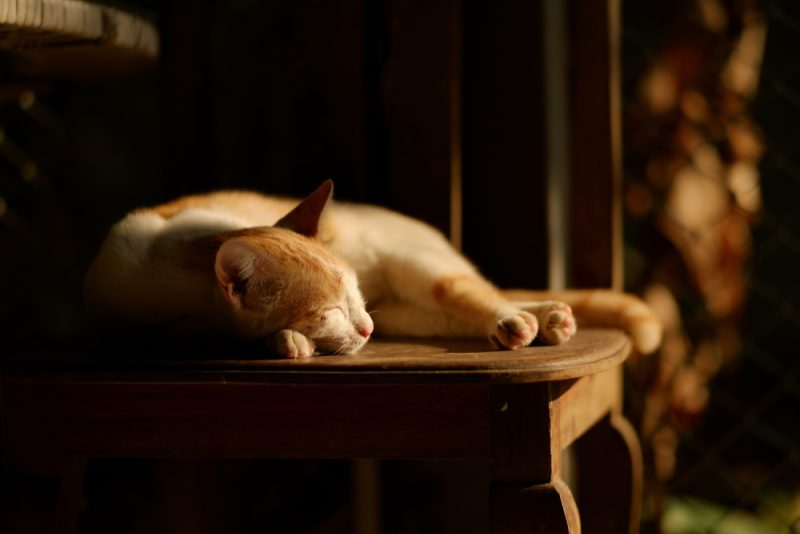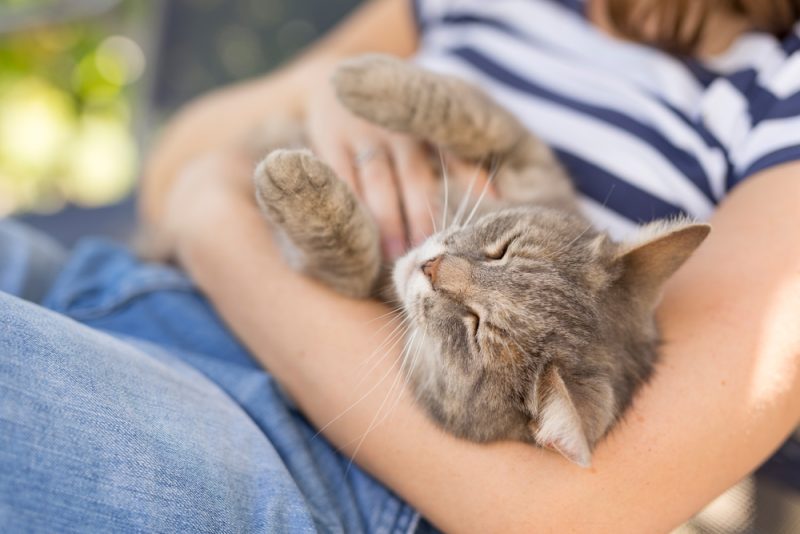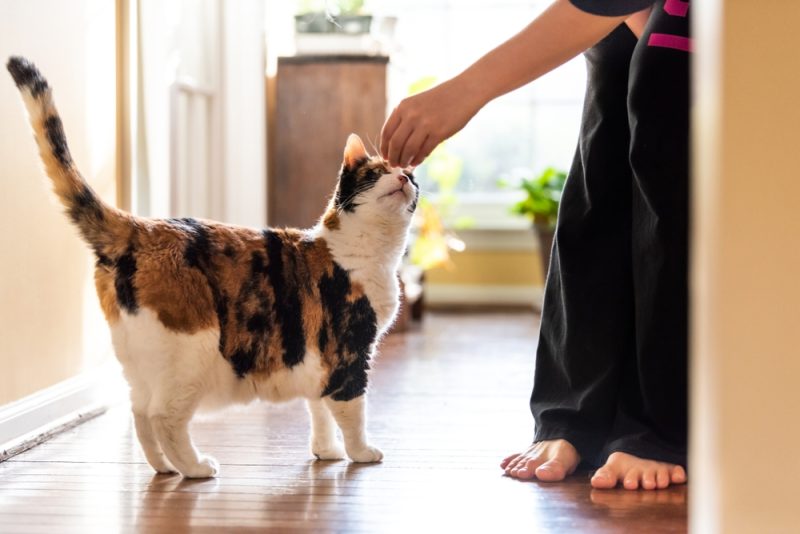In this article
View 5 More +Coccidiosis is a parasitic disease that affects the intestinal tract and is very common in cats, particularly in kittens under 6 months old. In many cats, infection with coccidia typically causes mild clinical signs, the most common of these being diarrhea. Other cats may even demonstrate no signs of gastrointestinal disease. The disease should usually resolve without medical therapy. When medication is instituted, clinical signs often rapidly resolve with treatment.
In some circumstances, however, cats with coccidiosis may present with more life-threatening complications. It is in these cases that it becomes essential to screen for underlying disease processes that may be causing a compromised immune system and common comorbidities (i.e., concurrent disease processes), such as infection with other intestinal parasites like Giardia and Tritrichomonas spp., that may be the actual culprits for the severe clinical signs present.

What Is Coccidiosis?
Coccidia is an example of protozoa (one-celled organisms). Infection with coccidia is referred to as coccidiosis and various species are included under the umbrella term of coccidia. In cats, coccidia species include Cystoisospora and Cryptosporidium spp. Infection with Cystoisospora spp. is more commonly diagnosed than Cryptosporidium infections.
Coccidia are also obligate intracellular parasites, meaning they require host cells to grow and replicate. They infect the cells of the wall of the intestinal tract. However, coccidia is commonly isolated from the gastrointestinal tract of cats, and their presence is not always associated with clinical signs.
For this reason, cats presenting with diarrhea where coccidia species have been identified in fecal specimens should not automatically be diagnosed with coccidiosis, as infection does not always equal outward signs of disease. This is especially important in cats older than 6 months, where other infectious organisms and disease processes (e.g., inflammatory bowel disease) are more likely responsible for gastrointestinal clinical signs, such as diarrhea and vomiting.
Cystoisospora organisms are also host-specific; thus, infection with this species cannot be spread to other species of animals or even humans. However, while they have a relatively narrow host range (and some are even host-adapted, similar to Cystoisospora spp.), they still have the potential to infect humans and thus are considered to have zoonotic potential.
Cryptosporidiosis, associated with clinical signs of diarrhea, is also more likely in immunocompromised cats, cats with concurrent infections, or those with an underlying disease affecting the gastrointestinal tract than cats that have a competent immune system.
If you need to speak with a vet but can't get to one, head over to PangoVet. It's an online service where you can talk to a vet online and get the advice you need for your pet — all at an affordable price!

What Are the Clinical Signs of Coccidiosis?
Coccidiosis in cats causes mild clinical signs and is considered self-limiting in most cases. Also, the disease is more common in kittens and particularly those animals obtained from stressful environments that are unsanitary and overcrowded. The disease is rare in cats over 1 year old. When present, it is generally recommended that other underlying disease processes be screened for as a more likely explanation for gastrointestinal clinical signs.
Subclinical infection with either Cystoisospora or Cryptosporidium spp. is common. When clinical signs are present, the most common presentation is diarrhea. The diarrhea is often watery and may occasionally contain blood. Other signs that may be seen include vomiting, reduced appetite, weight loss, and abdominal discomfort. In more severely affected kittens, especially those immunocompromised or with concurrent infections with other intestinal parasites, such patients can present with severe dehydration necessitating hospitalization and intensive care or otherwise resulting in death.
In cats with a compromised immune system and secondary coccidiosis (potentially along with other infections/parasites present), treatment can be extremely difficult. Often, managing these patients requires very lengthy practices, with some needing lifelong therapy.
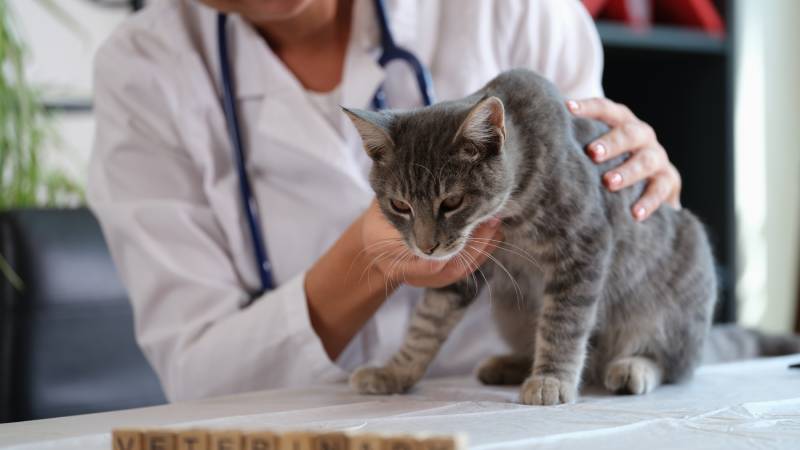
How Is Coccidia Transmitted?
For a cat to become infected with coccidia species, ingestion of sporulated oocysts (part of the life cycle of coccidia species) needs to take place. This can either be directly from a contaminated environment or by feeding on tissues of intermediate hosts in which growth and development can occur, or paratenic hosts where no growth or development occurs in such hosts, such as flies, cockroaches, or even dung beetles.
Unfortunately, coccidia species oocysts tend to be very resistant to both disinfectants and various environmental conditions. Thus, control of the environment and a potential source of infection is centered on the prompt removal of feces and steam cleaning of surfaces to destroy oocysts. In breeding colonies, queens are often treated with anticoccidial drugs before giving birth to kittens to lessen the risk of coccidiosis in the kittens.
How Is Coccidiosis Diagnosed?
The presence of oocysts of coccidia species needs to be identified in fecal samples from affected cats. Fecal flotation with zinc sulfate is the recommended method for diagnosis and is often adequate when it comes to demonstrating Cystoisospora spp.; however, Cryptosporidium spp. oocysts are often missed using this diagnostic method. For the latter, special stains can be used to facilitate diagnosis, or polymerase chain reaction (PCR) can be used to aid in making a diagnosis. Again, positive test results do not prove a disease association.
Fecal flotation is also helpful for identifying other infectious agents that, if present, may be more likely to be responsible for clinical signs of diarrhea, especially seeing as coccidiosis is often subclinical. It is also worth mentioning that fecal flotation may identify so-called pseudoparasites, such as Eimeria spp., which are coccidia species that are host-specific to animals such as rodents, rabbits, cattle, and poultry. Eimeria spp. do not cause disease in cats and result from ingesting prey like mice.
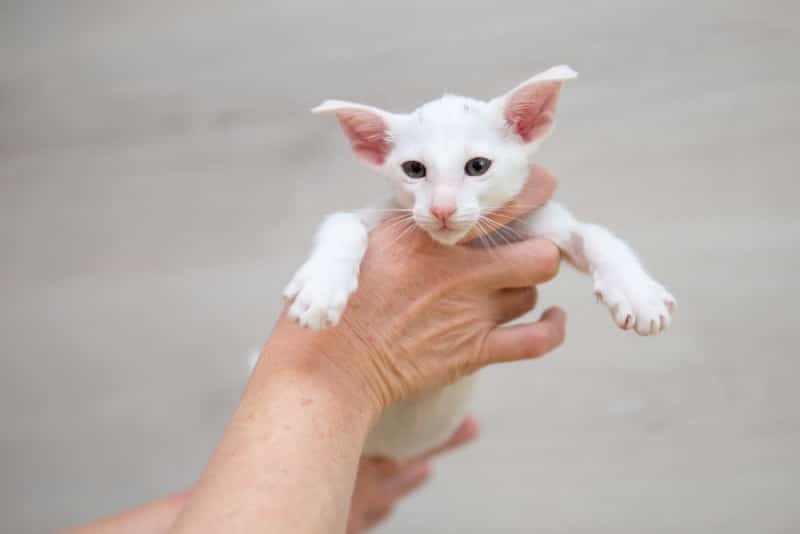

How Do I Care for a Cat With Coccidia?
As mentioned before, coccidiosis is often self-limiting, and most otherwise healthy kittens with such infection will resolve their diarrhea without any medical therapy. In some cases, however, veterinarians may still recommend treating healthy kittens with diarrhea and a diagnosis of coccidiosis with one of the various drugs available to reduce environmental contamination, which is essential in multi-cat households or cats living in a shelter environment.
There is only one drug that is currently approved for the treatment of coccidiosis in cats (and dogs): sulfadimethoxine. Treatment with this drug typically involves a 10- to 14-day course, sometimes up to 20 days. However, the drug is coccidiostatic and only prevents replication and development. Thus, even after treatment, there is the potential for a low-level persistent infection. For this reason, some clinicians advocate for the use of other drugs that are coccidiocidal, meaning they actually kill coccidia species. Examples of such drugs include toltrazuril and ponazuril. However, this constitutes extra-label use of these products.
Cryptosporidium spp. infections tend to be particularly resistant to various compounds that have been trialed, and no treatment has been shown to eliminate infection with this coccidia species. Management of such cases is thus focused on managing the clinical signs of diarrhea, for which adding either a fiber source or probiotic to the diet may help resolve signs.
 Frequently Asked Questions (FAQ)
Frequently Asked Questions (FAQ)
How Are Coccidia Species Spread Amongst Cats?
Coccidia can be transmitted between cats in a multi-cat household because of ingesting feces (containing oocysts) from mutual grooming, sharing litter boxes with infected cats, or ingesting contaminated food or water.
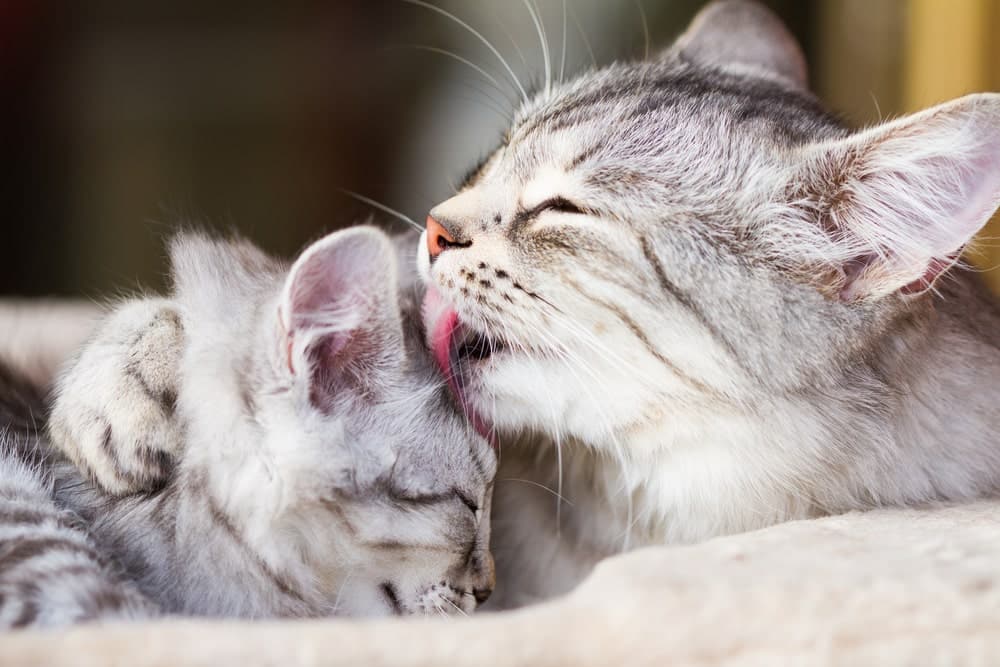
Can Feline Coccidia Species Infect Humans?
Cystoisospora spp. of cats are host-specific and do not infect people. Some species of Cryptosporidium are less host-specific and have zoonotic potential. In other words, they can infect people. Also, cats with coccidiosis can have a concurrent infection with Giardia spp., another intestinal parasite of animals with zoonotic potential.
What Is the Difference Between Giardia spp. and Coccidia in Cats?
Both organisms are intestinal parasites. Also, both are examples of protozoa. In many respects, these parasites are very similar. However, the nature of the diarrhea might differ with Giardia spp. often causing more malodorous diarrhea that may contain large amounts of fat or mucus, whereas coccidia species tend to cause watery diarrhea that may contain blood and occasionally mucus.
These slightly different presentations represent the mechanisms by which these parasites cause disease. However, a definitive diagnosis requires further diagnostics/investigation and cannot be based on clinical findings. Giardia spp. has zoonotic potential, whereas coccidia species are host-specific, and feline species cannot infect humans.

Conclusion
In summary, coccidia typically results in mild and often self-limiting disease in cats. Treatment is generally unnecessary, although it can be useful to speed up recovery and may also help reduce environmental contamination, which becomes more critical in multi-cat households.
Suppose a cat with coccidiosis presents with severe clinical signs and life-threatening complications. In that case, it is generally recommended that such patients undergo further investigation, including screening for other common infections that are most likely contributing significantly to the clinical state of the cat in question.
The same goes for cats older than 6 months diagnosed with coccidiosis and significant clinical signs. Typically, these cases also have an underlying disease process that allows for the recurrence and growth of coccidia species.
Featured Image Credit: Smile19, Shutterstock

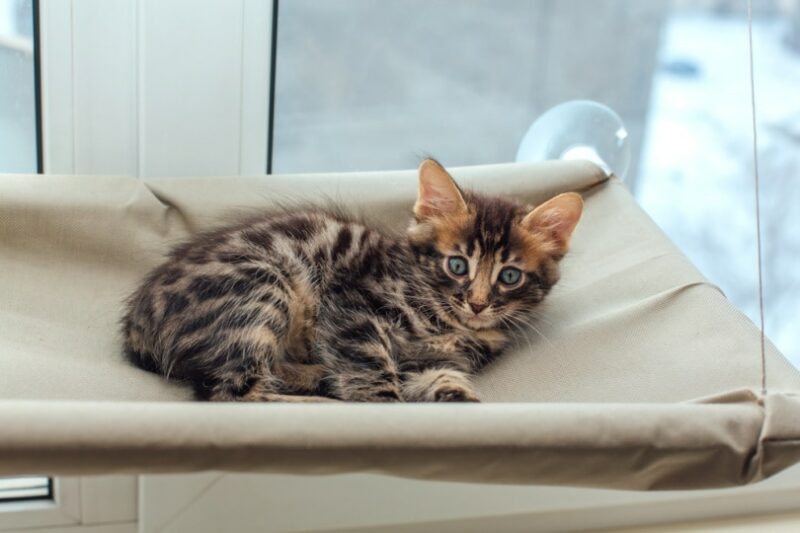
 Frequently Asked Questions (FAQ)
Frequently Asked Questions (FAQ)

